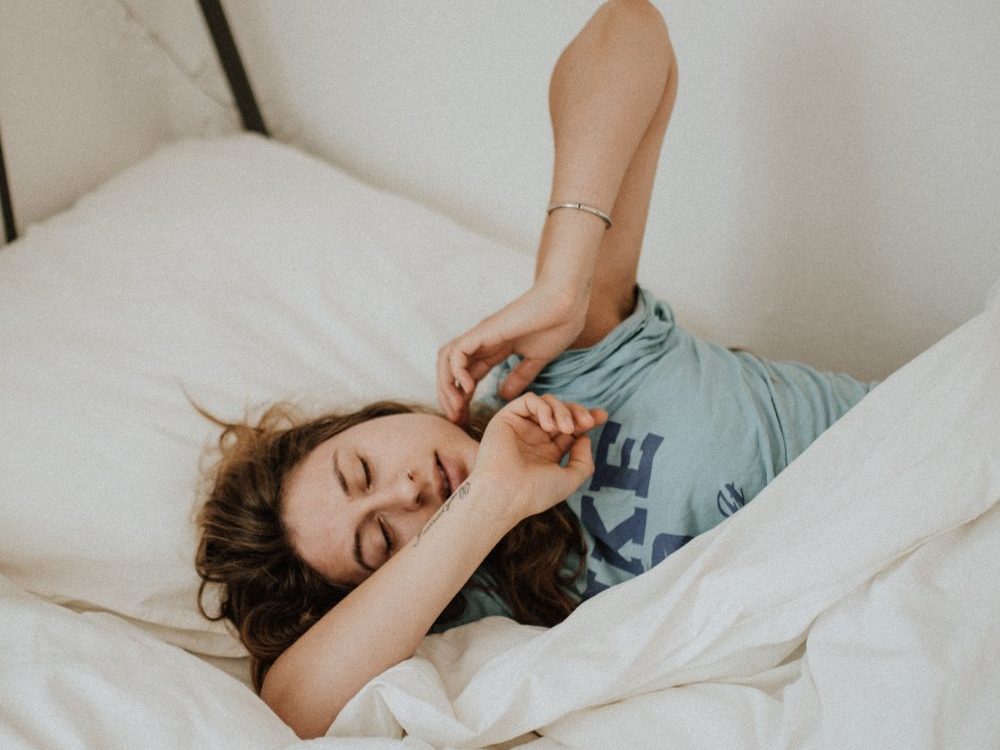It’s Sunday night and I’ve been tossing and turning for what feels like an hour. I have spritzed my pillow with lavender spray, practised that strange nostril breathing they teach you at yoga and nearly resorted to counting sheep. The most annoying part? I was out until nearly 3am last night and I’ve been looking forward to curling up in bed all day. So why can’t I just drift off even though I’m exhausted? Enter: social jet lag.
Yep, much like flying through different time zones, our social lives can also wreak havoc with our sleep patterns. When I speak to Dr Chris Idzikowski, a leading sleep expert and author of Sleep Well, he explains why sleeping in longer on the weekends than during the week can give us a feeling like jet lag. “Whether it’s a result of socialising or catching up on sleep lost during the week, our bodies are being forced to shift between two time zones: one dictated by work and social obligations and the other by our internal timing system, the circadian clock.”
The body’s circadian clock is the internal system that determines the sleep-wake cycle and it’s generally agreed that eight hours is the average optimum period of sleep, ideally taken at the same time each night. However, the time people naturally fall asleep and wake up varies and is based on your individual ‘chronotype.’ This is more commonly understood via the ‘lark’ versus ‘owl’ theory. ‘Larks’ being those who function best with early wakeups and early bedtimes and ‘owls’ being those who prefer later bedtimes and later wakeups. Social jet lag tends to impact night owls greater. “These people accumulate a sleep debt during the working week that they make up for on the weekend by sleeping late in the mornings. This creates the same lag as if they’d crossed time zones and the same adjustment is needed biologically to get in sync with the variation in cycle,” Dr. Sara Palmer Hussey, Cambridge University’s Global Expert on Ageing and founder of Lumity, told me.
The short term impacts of social jet lag can feel similar to those of travel jet lag. Naturally, the number one issue is the lack of sleep which leads to tiredness and all the lovely symptoms which accompany it. “Social jet lag can cause fatigue, poor concentration, decreased memory and irritation,” Dr Idzikowski highlighted. Continuously sleeping at different times for different periods can impact your health in the long term too. The main concern is that disrupted sleep interferes with your eating patterns. “This can potentially lead to weight gain related issues such as obesity and heart disease,” Dr Idzikowski commented. However, Dr Hussey is keen to point out that this is rare: “The occasional late night or weekend lie-in will not cause significant social jet lag as long as regular sleep patterns are the norm, just as travel jet lag won’t cause long-term effects as long as we are not crossing time zones every week.”
The obvious way to deal with social jet lag is trying to implement a routine where you go to bed and wake up at the same time each day. “This allows your body to optimise your internal circadian rhythm for the best quality sleep and the best alertness during the day,” Dr Hussey said. “The regularity allows your body to prepare for events hours before in order to maximise their impact. So, if your bedtime is 10.30pm, your body will be preparing for sleep a couple of hours before that time by releasing melatonin, which prompts a cascade of processes that takes the body into the repair and rest phase of its circadian rhythm, meaning that the quality of your sleep is maximised,” she adds. Setting an alarm for getting ready for bed as well as one for waking up can certainly help but life (and socialising) will inevitably get in the way at some points.
Dr Idzikowski notes the importance of diet, movement and light in improving sleep quality and avoiding that dreaded tossing and turning when you mess up your sleeping pattern. “Avoiding caffeine in the afternoon, eating a lighter dinner and getting some exercise can help make a big difference,” he suggests. “Make sure you have exposure to light in the morning and during the evening limit your exposure by keeping lights dim and adjusting your electronic devices so they don’t give off blue light,” he adds. Switching to reading before bed instead of scrolling through your smartphone or staring at the TV screen has been a game changer for me. Plus, of course, cutting back on one too many nights out.









